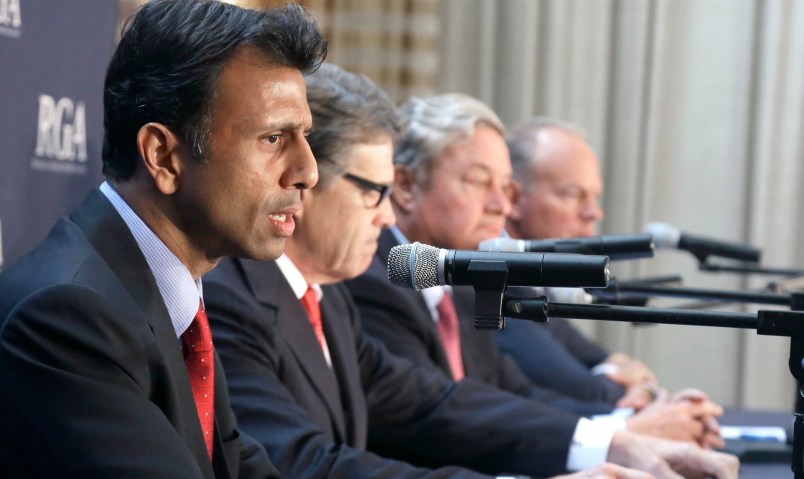With the Court now poised to make its most nakedly partisan move in the slow descent since Bush v Gore in 2000 by upending the Obamacare subsidy regime, there’s fevered debate and prognostication about the fallout that would follow. Will Democrats cave and agree to major revisions of Obamacare or will Republican governors (faced with an outcry from hundreds of thousands of constituents seeing huge rate increases) get pragmatic and adopt the federal exchange for their states to keep the subsidies flowing? Who blinks first is an interesting and important question. But it leaves a critical player, perhaps the critical player, out of the equation: the insurance companies.
Back in the dark days of the HealthCare.gov roll out fiasco, there was one thing that made me confident through the whole thing that the issue would get resolved: the insurance carriers. If the carriers wanted to get out of under Obamacare, that would have been the prime moment of opportunity. But they didn’t. Or more to the point, they couldn’t. So I was confident the whole thing was going to get ironed out because the insurance companies needed it to work out. And since they are the industry, they’d find a way to make that happen.

What sort of rate hikes are we potentially talking about?
Here is a truly eye-popping chart my friend Jon Cohn put together over at The New Republic which shows the percentage of rate increases for people who currently get subsidies (read the whole article). See a regional pattern? it’s almost like secession all over again, only now from Obamacare. In any case, see that rates for policy holders through the former confederate states would all jump by like 500%?
It’s not just the subsidy people who’d be upset. If they face 500% rate increases and drop out, carriers will have to jack up rates for the non-subsidized people. That is the kind of situation where the fantasy ‘death spiral’ the anti-Obamacare dead-enders pined for could really come true.
One of the things I was able to glean over the three years or so between passage and roll out is that the big insurance companies had dramatically reorganized their basic business models to get set for the ACA. For people who think the ACA was just a giveaway to the insurers that’s no surprise. But whether you think that or not doesn’t really matter for these purposes. The fact is they did. And going back just may not be possible.
Sure, pre-Obamacare private insurance, as such, could go back. But would all the individual companies survive? I’m not sure. And I don’t think they want to find out.
Now in a sane world having millions of people threatened with losing their insurance (and in a real sense, not the phony sense we had in 2013) and at the margins some people even threatened with losing their lives would be enough to ensure that people acted responsibly and did not allow that to happen. We don’t live in that world. But we do live in a world where extremely powerful corporations have lots of clout. In this case, the insurance companies and to a lesser extent the rest of the healthcare industry which of course relies on the insurers as the conduit of funding. So how do they react?
A stand off between the White House and Republican governors is clearly the worst of all outcomes for them. But my sense of this is that a continuation of the intent of the legislation would be by far their preferred outcome. The modern GOP has shown a remarkably ability to resist pressure, even from major constituent groups, when core ideological points are at stake. And business has been something of a paper tiger when it comes to disciplining Republicans about things that threatening the country’s credit rating or government by shutdown. But for the insurers at least the threat is much more acute.
Watch them to get a sense of how a post-SCOTUS power grab scenario plays out.






